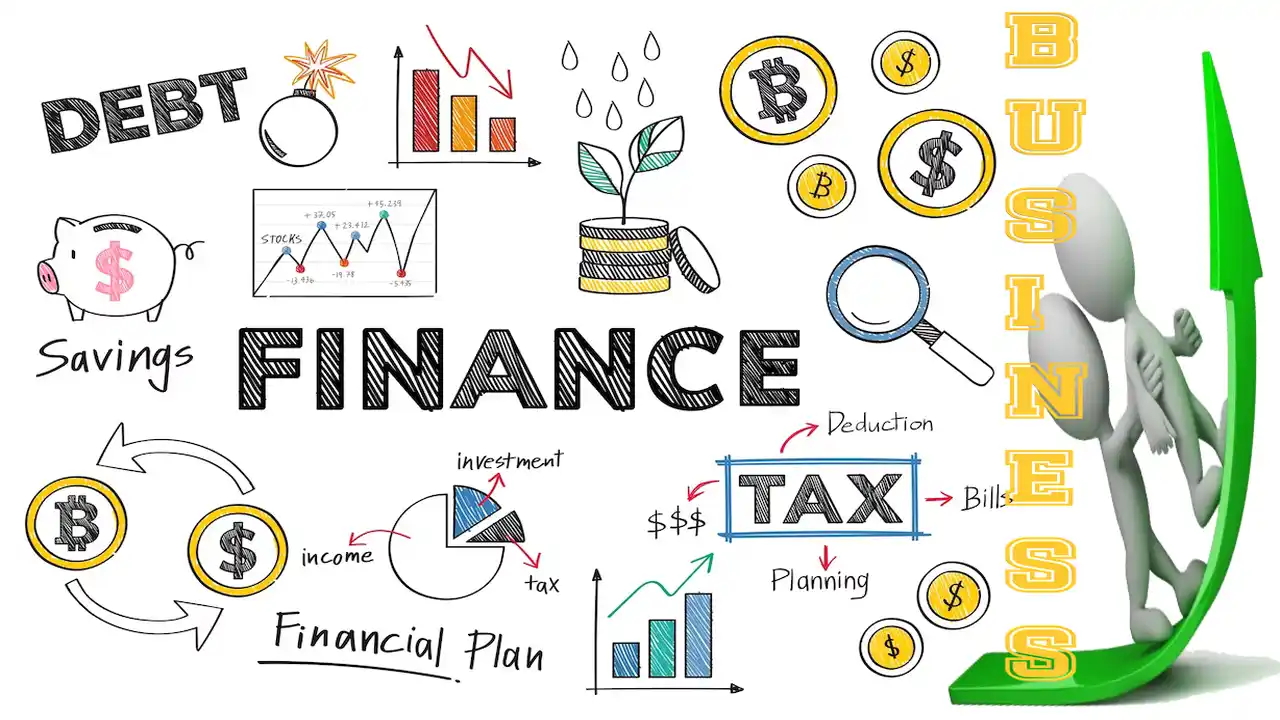Suppliers are individuals and companies prepared to part with their cash or offer loans to those in need. Also, lenders and investors of personal funds are among these companies. A wide variety of individuals, businesses, and governments are actively seeking new revenue streams in this industry. Also, it is a place where people may come together to buy and sell financial instruments in a more official manner. Anyone, from sole proprietors to large corporations, can engage in sales. not included We’re going to take a look at the features of capital market and discuss related matters in this topic.
Finding profitable ways to spend more money is Capital Market’s task. In order for the economy to expand and progress quickly, a robust and steady capital market is necessary. Thus, the capital market greatly affects a nation’s commercial sector. The buying and selling of debt and equity assets takes place in a capital market, which is an organized market.
Features of Capital Market
The difference between the money market and the capital market is that the former deals in debt instruments with shorter maturities, while the latter deals in debt instruments with longer maturities. Capital market items take longer than a year to mature compared to money market instruments, which take less than a year. For your convenience, we have provided an overview of features of capital market with a brief explanation.
Future Spending
The capital market facilitates the buying and selling of any financial asset, whether short-term or long-term. This increases the likelihood of success for long-term discoveries. This market connects local and international lenders offering long-term loans to many types of organizations, including businesses, trade associations, and financial institutions.
Factor Influencing Capital
Market conditions in the capital markets have a direct bearing on the pace at which economies amass capital. Since the capital market gives people options, those with more disposable income will be more inclined to put it to good use by investing more heavily and setting aside more funds for future opportunities.
Uses Third Parties
Underwriters, traders, depositories, and others serve as intermediaries that enable a capital market to operate. So, a capital market couldn’t function without its middlemen. It is their job to make sure that transactions go well. This is why these factors carry such weight in a stock market.
Stock Market
It is possible to buy and sell newly issued securities on the “secondary market” alongside those held by other customers. A company can’t sell its stock to anyone in this market. The current shareholders, on the other hand, sell their shares to new investors so that they can reap more profits. Investors looking to sell their securities and those looking to buy them meet in the secondary market. A broker acts as a go-between for investors when they trade assets for money. not included
Government Laws and Policies
Within the bounds set by government regulation, the stock market functions autonomously. The government sets the regulations and statutes that these markets are obligated to follow. Also, a good illustration would be how the stock market follows the rules set down by the government agency SEBI.
Main Auction
The primary capital market is the place where new stocks or debt is issued. This can come from the government or from stock. It is on this market, sometimes called the “New Issues Market,” that governments and businesses seek out alternative funding mechanisms. The business subsequently puts the newly acquired capital to use by purchasing debt or shares.
Until the loan is repaid or the corporation repurchases its own shares, and the stocks are sold on the secondary market, the obligation remains on the books.
Unsellable Securities
In the capital market, people trade both tradable and non-tradable assets. You can buy and sell marketable securities like stocks, bonds, and similar assets. The inverse is true for non-marketable securities, which are not tradable. Assets such as term deposits, loans, and advances are non-transferable.
The Involvement of Third Parties
Many people work in the Capital Market. These include dealers, underwriters, merchant bankers, sub-brikers, collection bankers, and more. When discussing a capital market, these intermediaries are essential.
Stocks and Bonds
On the stock market, you can buy and sell these kinds of assets. Simply said, equity securities are a way to invest in a corporation or business. Although, a company’s future earnings entitle stockholders to a portion. Having stock in a company is like having a little piece of that business in your pocket. The company is under no obligation to return your investment if you choose to buy equity securities. Financial securities, such as those backed by stocks, are the reason behind this.
Issue to the Public Via Prospectus
For securities, this was one of the first ways to get listed on a big market. I call it “Public Issue through Prospectur.” The purpose of a prospectus is to inform potential investors about a company and its offerings. You can learn about a company’s background, financial performance, and future plans by perusing its prospectus. The document goes on to detail the company’s fundraising goals. So, you can learn about the potential profits of the business and the risks of investing in it from the booklet. Anyone considering investing in the company can benefit from the data presented here. Key features of the capital market include the trading of long-term financial assets such as stocks and bonds.
FAQ
Just why is Capital Necessary?
The purpose of capital rules is to prevent financial institutions like banks from putting all of their money into risky assets. In addition, they should check that banks and other depositories have enough money on hand to pay operational losses (OL) and still pay their customers’ withdrawals.
How does the Capital Market Contribute to the Growth of an Economy?
Since they facilitate the generation of wealth and economic growth, capital markets are indispensable to any economy. The capital markets link lenders and savers by factoring in the level of risk that each party is ready to take on with different types of loans. A win-win investment opportunity is what we’re aiming for.
In Financial Markets, what Kinds of Tools are Utilized?
In this market, what kinds of financial instruments are utilized? So, in capital markets, various kinds of financial instruments are used. Instruments including futures contracts include stocks, private sector bills, mutual funds, bonds (both public and private), options, leasing certificates, alternative investments, and many more.
Final Words
Liquidity, the capacity to buy or sell an item at a set price right now, is another important feature. The price will probably stay around the same as it was for comparable deals in the past if there is no fresh information. The potential for quick sales is a prerequisite for liquidity. The item’s marketability is another name for this. On the other hand, availability is not guaranteed just because you are allowed to sell. Considering the past and present bid-ask quotes as well as the expected price, it is essential that the predicted price remains somewhat stable. Thank you for reading. To continue expanding your knowledge, we encourage you to explore our website for additional resources. To gain a more global perspective on characteristics of capital market topic, read this report.






